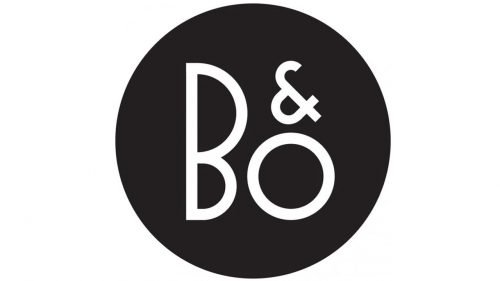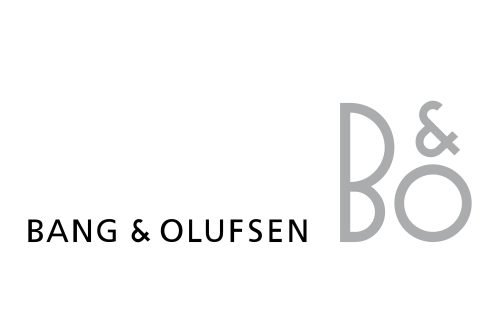History of the B&O Logo
Bang & Olufsen is an iconic brand of Danish audio systems manufacturer and designer, which was established in 1925 in Struer. It’s founders, Sven Olufsen and Peter Bang were two young promising engineers. Now the brand is owned by Harman, a subsidiary of Samsung, and is sold across more than 100 countries.
Meaning and history
The Bang & Olufsen logo is one of the most recognizable logos around the world, it is a brilliant example of contemporary branding design.
The Bang & Olufsen logo is a neat wordmark in black with a gray B&O graphical symbol. It is executed in a modern and stylish sans serif font. And the brand’s color palette elevates it’s elegance and sophistication.
The B&O graphical icon is the element, which makes the logo unique and memorable. The letter “B” looks like it is inverted, which symbolizes how the brand affected the world of music and design — it has simply turned it around.
Originally the logo was drawn in the 1930s by a young painter, Hanning Dahl Mikkelson, who asked 5 Kroner for his iconic piece. A 16-year-old artist created a timeless symbol of style and excellence.
What is Bang & Olufsen?
Bang & Olufsen is the name of a famous European brand of audio systems, which was established in Denmark in the middle of the 1920s, and by today has grown into one of the world’s most famous and iconic companies in this segment. Bang & Olufsen today is synonymous with a sound of the highest quality.
Font and Color
The modern uppercase lettering from the official Bang & Olufsen logo is executed in the uppercase of a fancy and stylish sans-serif typeface. The closest fonts to the one, used in this insignia, are, probably, Rolphie 05 Bold SC or Neue Frutiger Arabic Medium.
As for the color palette of the Bang & Olufsen visual identity, it is based on the combination of black and gray, with a clean white background creating a strong and elegant contrast. The color palette stands for excellence and a professional approach to all aspects of business, including manufacturing and design.


